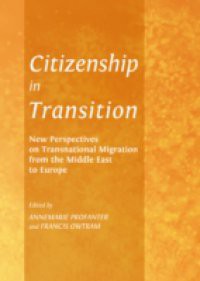The revolutions of the Arab Spring have challenged the notion of what citizens in the countries affected expect from their governments, and also potentially created a new wave of migration, once again showing how the local and the global are connected in the identity of citizens and notions of citizenship. At the same time, this turmoil has called into question dominant modes of thinking about the Middle East and affected European government policy on immigration. Two broader developments - the change in the internal composition of liberal democracies, and the challenges imposed by globalization on the state - have led to the concept of citizenship being rethought, particularly in a transnational sense.By bringing together new perspectives, this timely and thought-provoking book deconstructs the processes that are shaping and reshaping issues of migration and integration in Europe, and illuminates emerging patterns in key issues such as citizenship and cultural identity, education, and second generation networks.

